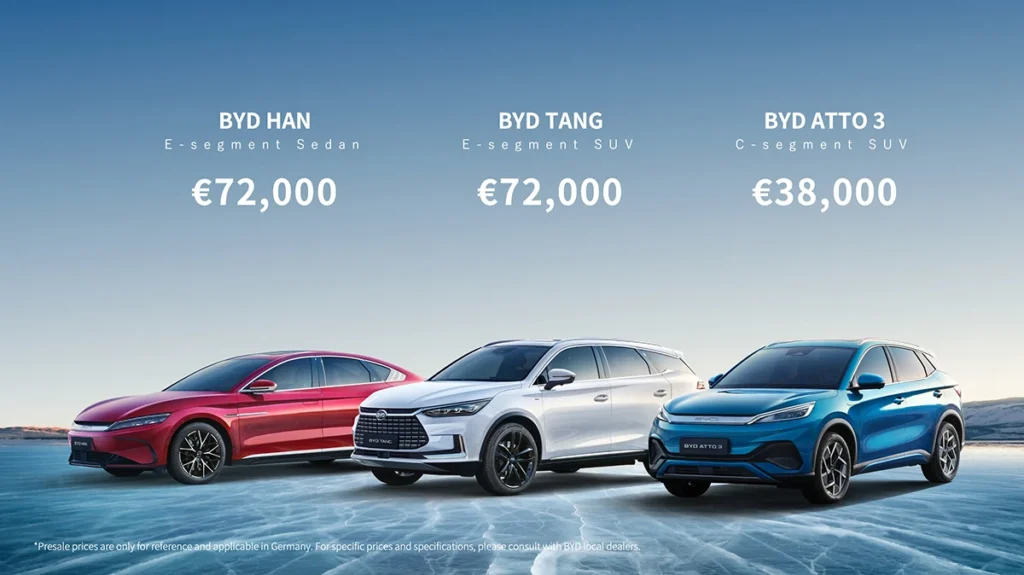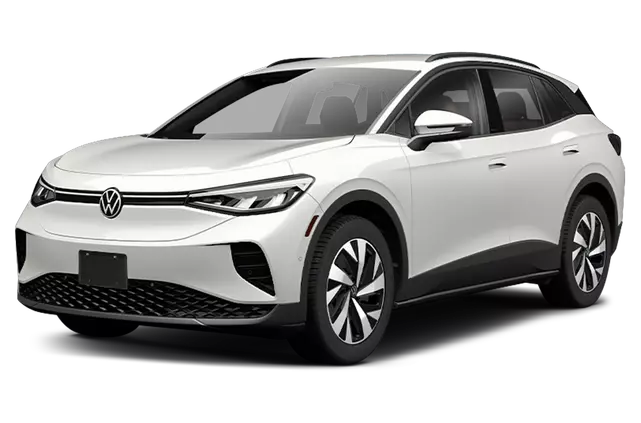China’s commitment to the development of Electric Vehicles (EVs) has attracted significant investments from both central and local governments. This growing interest in EV technology is not limited to China alone, as businesses and governments worldwide are actively seeking innovative solutions that can lower costs and promote the use of environmentally friendly vehicles.
Featured Image credit: mms.businesswire
Since becoming the most prominent car producer in 2009, China has made substantial investments in electric vehicle manufacturing, solidifying its position as a global leader in this sector.
Chinese car manufacturers have established a reputation for their ambitious nature and a track record of successfully realizing their goals, particularly within the domestic market. Among these companies, BYD (Build Your Dreams) has emerged as a notable player with significant traction both domestically and internationally. Notably, it has garnered attention and support from renowned investors such as Warren Buffett.
In recent developments, BYD has unveiled plans to expand its presence abroad by entering the Australian market through strategic partnerships with local distributors. This move reflects BYD’s commitment to furthering its global reach while maintaining its ambition to deliver innovative solutions in electric vehicles.
Company Overview and History
Shenzhen, a prominent Chinese city near Hong Kong, has gained recognition for its expertise in electronics manufacturing. In this dynamic environment, entrepreneur Wang Chuanfu established BYD in 1995.
With an academic background in materials science and chemistry, coupled with the Chinese government’s experimentation with elements of capitalism in the region, Chuanfu boldly ventured into competition with Japanese companies dominating the export market for rechargeable batteries at that time.
BYD initially emerged as a manufacturer of rechargeable batteries and swiftly expanded by becoming a significant supplier to numerous mobile phone manufacturers. By leveraging his expertise and capitalizing on the Chinese government’s trial of limited capitalism within the region, Chuanfu successfully positioned BYD as a formidable player in the market.
This strategic move allowed it to compete with its Japanese counterparts while establishing itself as a trusted provider of high-quality rechargeable batteries.
With an unwavering commitment to excellence and continuous improvement, the company quickly gained recognition for its contributions to the mobile phone industry through reliable battery solutions.
Following his success in the battery market, Wang Chuanfu sought to explore new horizons for his batteries. Recognizing the potential future of electric-powered vehicles, he made a daring and risky decision to acquire struggling Chinese automaker Qinchuan Auto (later renamed BYD Automobile). This strategic move served as an entry point into the automotive industry, allowing BYD to learn how to scale up mass car production.
In line with the agile nature of many Chinese companies, BYD embraced a fast-follower approach. By employing reverse engineering techniques and developing in-house tooling and molds for specific parts, they initially tapped into foreign carmakers’ expertise to produce derivative models. Over time, it gradually enhanced these models by incorporating their improvements and innovations.
Initially relying on components and knowledge sourced from renowned Japanese car manufacturers like Mitsubishi and Toyota, BYD successfully embarked on mass-producing combustion engine models. However, they swiftly shifted gears towards electric vehicles (EVs) by introducing their groundbreaking model – the BYD E6 electric people-mover – in 2010.
This pivotal shift marked a significant milestone for BYD, transitioning from manufacturing traditionally fueled vehicles to prioritizing EV technology. This bold move towards sustainable transportation practices solidified its position as an innovative leader in green mobility solutions.
Now, BYD has positioned itself as a remarkably valuable player in the automotive industry, with its current market capitalization standing at an impressive US $103.58 billion. Surpassing the worth of well-established brands like Mercedes-Benz, Ford, General Motors, and BMW, this company has solidified its presence in the market. While renowned for manufacturing cars, BYD also extends its expertise to produce various commercial vehicles such as electric buses, forklifts, and trucks.
It’s noteworthy that BYD’s original business focus on battery manufacturing for mobile phones has been spun off into a separate entity known as BYD Electronics. This subsidiary not only manufactures various medical devices and computer components but also maintains a close relationship with BYD Automobile. Both entities continue to share logo and branding elements.
Attracting attention from notable investors has further propelled the brand’s prominence recently. One particularly famous investor is Warren Buffett, who acquired a 10% stake in the company in late 2008 by investing $232 million.
Current Model Line-up
BYD offers a diverse lineup of electric vehicles (EVs) that includes both ‘dual mode’ plug-in hybrids and battery electric vehicles. While the company primarily focuses on selling its plug-in hybrid range within the Chinese domestic market, its battery electric vehicles are available domestically and internationally.
One notable addition to BYD’s portfolio is the Han EV sedan, which competes directly with Tesla’s Model 3. The Han EV boasts an impressive power output of up to 362kW in its range-topping ‘Supreme’ trim level. Even in its entry-level variants, it promises a respectable range of 605km according to the NEDC cycle—though it is worth noting that this figure may be rather optimistic.
All models within the Han EV sedan lineup utilize a cutting-edge 76.9 kWh LFP (lithium iron phosphate) battery developed using BYD’s innovative ‘Blade Battery’ design. This groundbreaking technology employs ‘cell-to-pack’ integration, enhancing energy density while elongating cells into structural beams, contributing to the pack’s overall strength and durability. Furthermore, this design approach helps reduce weight and production costs—a win-win scenario for manufacturers and consumers alike.
In addition to sedans, it offers a range of electric SUVs, with the Tang EV being one of their standout models. This high-performance SUV combines power and sustainability with its impressive acceleration capabilities and long-range features. Equipped with advanced battery technology, the Tang EV offers drivers an exhilarating driving experience without compromising on environmental consciousness.
Technological Advancements by BYD
BYD has been at the forefront of technological advancements in the electric vehicle industry, continuously pushing boundaries and setting new standards for innovation.
Blade Battery Technology
One groundbreaking innovation introduced by BYD is its Blade Battery technology—a game-changer in battery design. By integrating cells into structural beams within the pack itself, this unique approach enhances energy density while improving overall safety levels by reducing thermal runaway risks associated with traditional battery designs.
The Blade Battery design also contributes to weight reduction and cost optimization—two crucial factors determining the widespread adoption of electric vehicles globally. With this breakthrough technology, BYD is revolutionizing how batteries are manufactured while prioritizing safety concerns associated with energy storage systems.
Smart Ecosystem Integration
Beyond vehicle manufacturing alone, it aims to create a comprehensive smart ecosystem that seamlessly integrates various aspects of transportation infrastructure. This includes developing charging networks across cities as well as implementing intelligent traffic management systems to support the growing EV market.
Its commitment to a holistic approach extends beyond electric vehicles. The company actively seeks collaborations with other industries, such as energy storage and renewable energy solutions, to create synergies that drive sustainable development on a larger scale.
BYD’s Global Reach
While BYD initially focused on the Chinese domestic market, their ambition has taken them far beyond national borders. Today, its electric vehicles can be seen on roads in numerous countries worldwide. Their global expansion is further supported by strategic partnerships and investments from renowned entities like Berkshire Hathaway, where Warren Buffett acquired a 10 percent stake in BYD back in 2008.
BYD remains committed to expanding its international presence while contributing significantly towards reducing carbon emissions and promoting sustainable transportation options across the globe.
Our Final Thoughts
BYD’s journey from being a battery manufacturer for mobile phones to becoming an industry leader in electric vehicles exemplifies its dedication to innovation and sustainability.
As consumer demand for greener transportation options grows daily, companies like BYD play a crucial role in accelerating the transition towards sustainable mobility. With their global reach and unwavering commitment to developing cutting-edge technologies, it is evident that BYD will remain at the forefront of electrification efforts for years to come.


